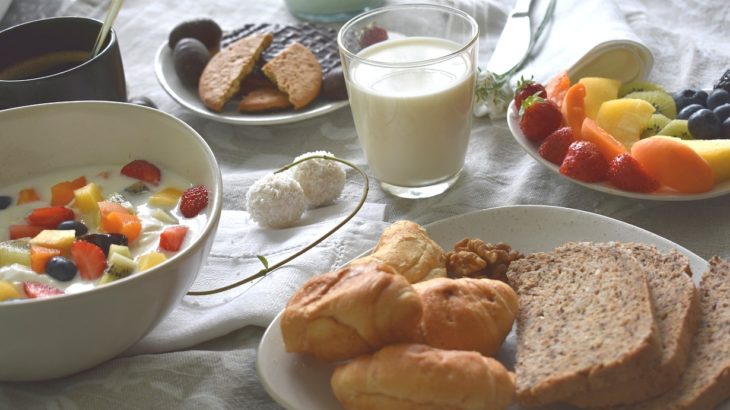A wise saying and I quote
“All happiness depends on a leisurely breakfast.”
Well, a lot of things have been said and written about whether one should eat breakfast or skip it. With new ideas related to losing weight, the fundamentals have been challenged quite a lot. With our internet, a boon to mankind, we have thousands of sites telling us what to do. I am also one of those people who love to experiment and analyze the ways to be fit and healthy and being a sports person, it has become my passion to promote fitness with a healthy lifestyle. According to a recent study, eating breakfast before a workout can help your body burn carbohydrates during the sweat fest, and more quickly digest food after it. Breakfast speeds up the clearance of glucose out of the bloodstream and into muscle after we eat lunch, even when we perform exercise in-between breakfast and lunch. Researchers clearly stated that the carbs burned during exercise were not just coming from the breakfast eaten — but also from the carbs stored in muscles as glycogen. This increase in the use of muscle glycogen may explain why there was a more rapid clearance of blood sugar after lunch when breakfast had been eaten before exercise. Eating a breakfast high in fat, protein, or carbs would likely produce a different response. Research has shown that a high-fat breakfast impairs blood glucose control at lunchtime, which is the opposite response to eating a high-carb or high-protein breakfast. Most of the research on that was conducted when people rested afterward, not when they exercised. Skipping breakfast can have positive effects on insulin levels, blood sugar control, weight, energy levels, and inflammation for some people, but everyone is different. Science suggests that it might help with certain populations of people; there is no one-size-fits-all approach to nutrition, so I don’t advise this for everyone. For people who want or need breakfast, I recommend eating a protein- and fat-based meal within one hour of waking up.
Choose lower-glycemic carbs in the morning such as non-starchy veggies, berries, herbs, or citrus. Keeping breakfast heavier with healthy fats and protein and saving carbohydrate-rich foods like starchy vegetables, grains, legumes, and fruits for later in the day is beneficial to keep blood sugar and insulin levels lower for more of the day. It can control appetite and curb cravings. That can include eggs with some non-starchy vegetables. Instead of breakfast, you can also try a snack before working out, such as half a banana with almond or peanut butter on it, or a handful of nuts. Whether you are eating or not before a workout, you should aim to have a balanced meal or snack that contains protein within 30 to 60 minutes post-exercise. Low-level aerobic activity like walking before breakfast can tap into your ‘fat-burning zone’ and boost your fat burn, and you might feel better saving more intense workouts for later in the day if your schedule permits.
Consume the snack or meal 45 minutes before exercising, whatever you eat, so the body has time to digest the food. If your exercise routine is lighter in intensity and less than an hour, you may want to eat a smaller amount. A good breakfast can include oatmeal, nut butter, and fruit. Just make sure you use plain oats — not the sugar-laden varieties. I love this combo because oatmeal contains complex carbs for sustained energy, nut butter for a healthy dose of protein and heart-healthy monounsaturated and polyunsaturated fats, and banana for a kick of instant energy as well as key vitamins, minerals, and antioxidants. If you plan on working out first thing in the morning and are looking for a healthy breakfast, I would recommend a smaller portion of the above ideas, or a snack consisting of a balance of carbohydrates, healthy fat, and protein.
-Arjun Bisht

